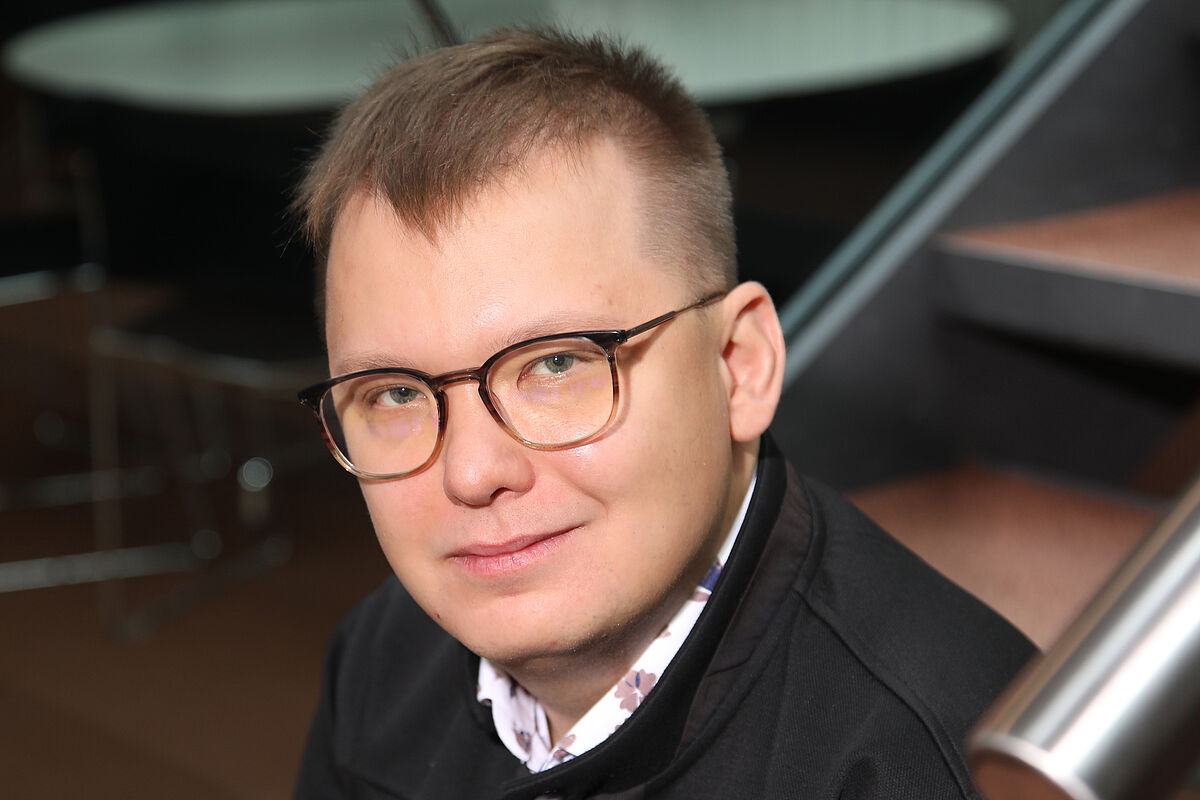
Professor Dr. Łukasz Łopusiewicz
Senior Fellow, October 2025 to September 2026
University of Economics and Human Sciences, Warszawa
- Associate Professor of Health Sciences (Warsaw, Poland) and postdoctoral researcher (Greifswald, Germany), specialized in sustainable biotechnology, microbiology and biopolymers
- Leader and contributor to numerous national and European-funded scientific projects focusing on plant-based innovations, antimicrobial packaging and the utilization of by-products from the agri-food industry
- Author of over 100 scientific publications and book chapters
Fellow project: „How does the most common polymer in nature affect the biofilm formed by Escherichia coli?“
Multifaceted analysis of the effects of cellulose and its derivatives on the growth, metabolome, and pathogenicity of multidrug-resistant E. coli in bacterial biofilms
The research project aims to delve into the role of cellulose, the most abundant natural polymer, in influencing the formation, growth, and pathogenicity of biofilms created by multidrug-resistant Escherichia coli (E. coli). Conducted at the University of Greifswald with the support of the Krupp Foundation, this interdisciplinary study will combine classical microbiological methods with advanced molecular biology, genetics, and biochemical approaches to address a critical issue in public health: the rising threat of antibiotic resistance. The primary objectives of this research include investigating how external cellulose and its derivatives affect biofilm formation by E. coli, analyzing the subsequent impact on bacterial growth and metabolism, and exploring the potential of cellulose to mitigate the challenges posed by antibiotic-resistant bacteria. The study will scrutinize various forms of cellulose, assessing their influence on the biofilm's structural integrity, bacterial survival under stress conditions, and the overall pathogenic potential of the bacteria within these biofilms. A comprehensive understanding of these interactions could pave the way for innovative strategies in combating biofilm-associated infections, particularly those resistant to multiple drugs. By providing insights into the dynamics of bacterial biofilms in the presence of cellulose, this project aspires to contribute significantly to the development of novel therapeutic approaches that exploit the natural properties of cellulose to hinder or disrupt biofilm formation, thereby offering new avenues to address the growing problem of antibiotic resistance.
